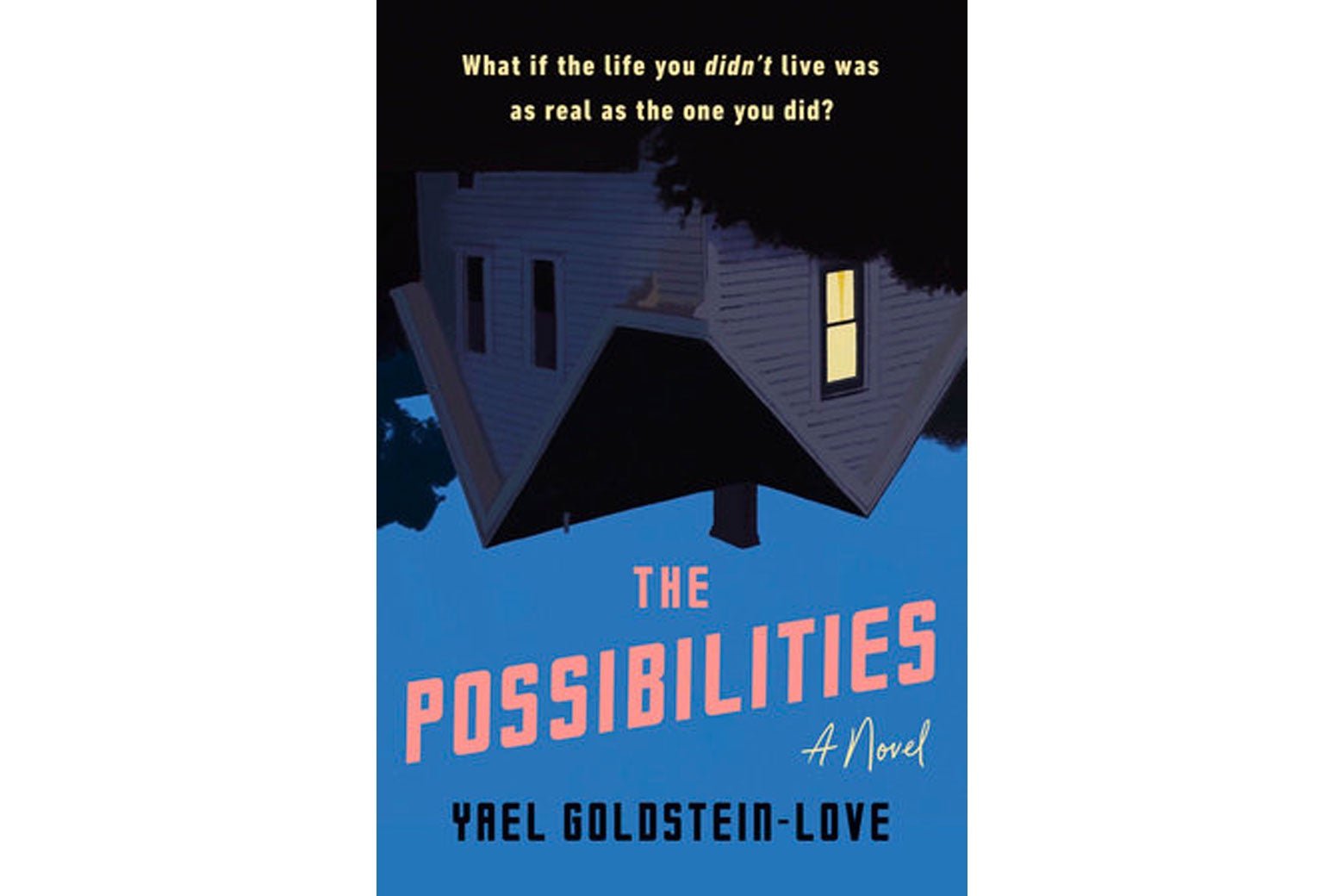
Not so long ago, my children’s kindergarten entered a soft block. The menace was an active shooter on the nearby UC Berkeley campus. For several minutes after receiving this news, I sat paralyzed at my desk. I was trying not to imagine exactly what no parent should imagine under these circumstances: the little, beloved face contorted with fear, confusion, pain. I was trying not to think about how obsessed and terrified he was about my son’s death at that moment, how creatively he was trying to think about a problem with no solution. He had recently taken to telling me, as we cuddled before bed, that scientists are working on a cure for death that will probably be ready in time to make us both immortal.
In my fear, one thought came into stark new relief: There is a discrepancy between the primal maternal drive to protect our offspring and our knowledge that it was largely powerless to do so, and this gap between what we wish to do as mothers burdened with seeing the next generation, and what we can realistically do as humans, is one of evolution’s most brutal gifts. No wonder anxiety is such a key part of motherhood.
Yet historically, anxious mothers have been ridiculed and institutionalized. We are a society that venerates motherhood while vilifying mothers, and thus we maintain impossible standards of care while ignoring the painful drudgery of actually caring. And we see the consequences of this double bind everywhere, from anti-choice legislation to the so-called parental rights movement to rising levels of depression in both mothers and children. What’s a mom to do? One solution: Take your concern seriously.
I say it like it’s easy. But learning to respect my motherly concern without letting it control me or, by extension, my child has proven to be one of my toughest parenting challenges.
My son’s heartbreaking delivery certainly didn’t help. He was born by emergency caesarean section with the cord wrapped tightly around his neck and a mucus plug hidden in his airways that the medical team only found after 10 minutes of unsuccessful CPR administration. When they finally got him breathing, they took him to the NICU. For over an hour afterward no one could tell me whether he would live or die. Eventually he was fine, saved by a supply of oxygen in his umbilical cord blood. I brought home a healthy newborn, but I was also terrified of almost losing him.
Soon a game began that I played several dozen times an hour: Are these my maternal instincts or is it just anxiety? My instinct to push for a C-section had saved this baby’s life. Surely, I had to trust my instincts. But instincts are irrational, tendrils of thoughts and feelings that lead you beyond available evidence. Somehow, I was supposed to have a mother’s instincts while also being calmly rational, and that seemed as much of a contradiction as a sexy nursing bra.
My entry into motherhood was extreme, but I’ve heard from many mothers, especially in my clinical work as a psychologist, that even their worrying is subject to a losing version of the Goldilocks effect: they worry too little or too much, but never enough.
For the past year, I’ve been researching maternal anxiety, asking mothers to describe the experience in their own terms. A common theme is worrying From their concern. As one of my attendees said, if you’re a concerned person, you don’t have to be a happy, playful mom, so this is another way you’re messing with your kids. Another said, “It may feel like this double bind where you should worry but don’t worry, but they’re actually one and the same.”
British psychoanalyst Rozsika Parker poses this dilemma in terms of navigating between internalized stereotypes of the overprotective, stuffy mother and the cold, rejecting mother. For BIPOC mothers, it’s an even tighter squeeze: The realities you protect your child from are harsher and the judgments for each choice you make more punishing, especially when those choices deviate from white norms.
Instincts versus irrationality. Worry versus care. Anxious versus happy. Overprotective against rejection. realistic vs. dominant culture sanctioned. While we consciously dismiss each of these dichotomies as reductive, it’s hard not to embrace them and judge ourselves based on them. And once we submit to their terms, we doom ourselves to failure. They’re all variations of the same directive: keep these vulnerable little beings safe even knowing you can’t, and whatever you feel when faced with this impossible task, make sure it doesn’t affect your behavior in any way except exactly when and in ways that would have been best.
It’s a maddening set of constraints and makes a difficult task that much harder. But it turns out that there is a way to release its grip on our psyche. Or at least there was for me. I learned this when, after eight months of waiting for the awful and unexpected to happen to my son again, it finally happened. My partnership with his father crumbled and I found myself across the country without all my supports, without a steady income, moving from the nice people’s spare bedroom to the nice people’s couch, often relocating a child and all of his gear.
All the routines and systems I had in place to perform the act of balancing my maternal anxiety between instinctual and rational, thoughtful but not neurotic, the nap schedule, the toys, the childcare, the well-stocked kitchen, faded into memory as I just focused on getting myself and my son through each day reasonably intact. We lived like this for nine months. With no certainty or stability to protect me from the full force of my motherly anxiety, that painful gap between my desire and my ability, something started happening. I’ve learned to surrender to the fear that comes with taking charge of something as uncertain as a human life. The potent combination of responsibility and helplessness has reduced me to my bare bones.
We don’t often think about the sheer existential burden of caring for a child and how anxiety is built into it. To honor this aspect of motherhood would be to look head-on at the realities we all find heartbreaking: that life is fragile, we never know what comes next, we suffer, and eventually we die. Maternal concern is at the heart of what is terrifying about being alive and loving. Duties that leave mothers so little leeway in how they care are a form of denial. It is far more comfortable to blame the mother than to deal with what the human condition turns out to be a disappointment.
I haven’t exactly transcended the contradictory messages hurled at the concerned mother. I can still chide myself for being irrational but also not intuitive enough, somehow overprotective and careless at the same time, neurotic even when I’m right. But reminding myself of the existential weight of loving through uncertainty makes me more skeptical of the internalized standards that lead to these judgments. The rules of good parenting are starting to feel less like ambitious goals and more like the furious demands of a child who wants you to put on a banana peel turn it back ona certain child that you are holding back when the truth is that you are faced with a situation that you simply cannot control.

By Yael Goldstein-Love. Random house.
Slate receives a commission when you purchase items using the links on this page. Thank you for your support.
And here’s the kicker: When I let myself be terrified, even though it can make me miserable and certainly stifling at times, I enjoy being a mother so much more. As one participant in my research points out, I feel the abundance of the world more. And that comes from being aware of this dark side of how easy it would be to strip it all away.
Before having my son, I heard two very different stories about what this phase of life would be like. Some people told me I was about to enter a period of profound and moving contentment. Others have warned me to prepare for a season of psychological breakdown. These were never the same people, so I figured my fate would be one or the other. I was hoping it would be the former but tried to prepare for both. It never occurred to me that it would be both. Loving my child is terrifying because I have never known so much joy and fulfillment. And I know this joy and fullness because I live on the edge of fear. I found my way to this realization and the stability it brings to my sense of myself as a mother when I stopped trying to separate the wonder and terror. Instead, I learned to accept them for what they are inevitable and inextricable.
#defense #anxious #mother
Image Source : slate.com